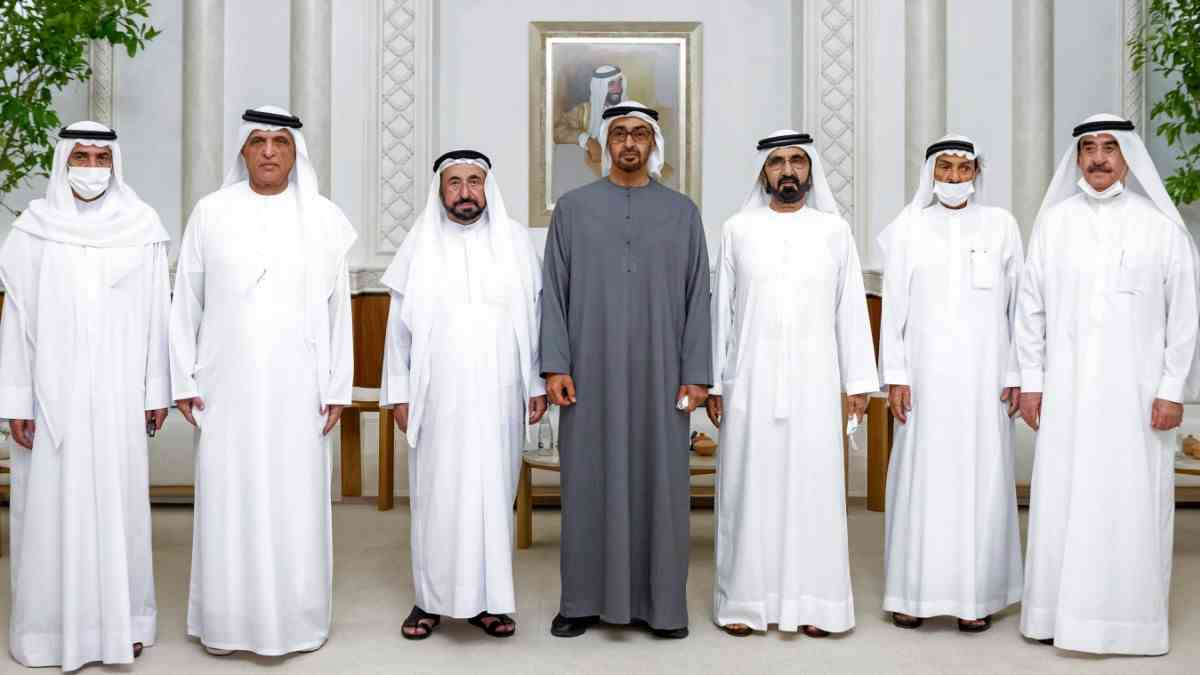High-ranking representatives of international politics traveled to the United Arab Emirates last weekend to offer their condolences to Mohammed bin Zayed, the new and third president – including Federal President Frank-Walter Steinmeier, French President Emmanuel Macron and Israel’s President Isaac Herzog. His predecessor in office, Khalifa bin Zayed al-Nahyan, died last Friday after a long illness.
On Saturday, the rulers of the seven emirates agreed on his half-brother Mohammed, MbZ for short, as the new president. Even before this decision, the British-trained helicopter pilot was the most powerful man in the country and one of the most influential leaders in the Arab world. The 61-year-old Crown Prince of Abu Dhabi has been the de facto ruler of the wealthy Gulf state since 2014 after his brother suffered a stroke and barely appeared in public. MbZ made the most important foreign policy decisions, such as entering the Saudi-led war in Yemen in 2015 or establishing diplomatic relations with Israel in 2020, the so-called Abraham Agreement.
Mohammed bin Zayed doesn’t make big speeches, he’s rather the silent strategist in the background, but that can’t hide his power and geopolitical ambitions throughout the region. He still finances mercenaries in southern Yemen, in Libya he supplied General Khalifa Haftar with modern drones, combat aircraft and mercenaries, and he responded to the democratic revolutions of the so-called Arab Spring by supporting autocratic and nationalist forces.
His attitude is now also reflected in his dealings with Russia. Instead of isolating President Vladimir Putin at the request of the West, Mohammed bin Zayed opens the floodgates to Russian oligarchs associated with the Kremlin. Under his rule, the Emirates have developed into a haven for rich Russians, as the “Dubai uncovered” research of the Süddeutsche Zeitung showed. Critical voices are not tolerated in the autocratically run desert state. In recent years, the United Arab Emirates have increasingly developed into a surveillance state in which sophisticated hacking software is used to spy on those who think differently.
Those of different beliefs are welcome, those who think differently are not
Unlike his Saudi ally Mohammed bin Salman, however, Mohammed bin Zayed pays more attention to his image in the West. He likes to present himself as a tolerant ruler who upholds religious freedom. For example, there is a Ministry of Tolerance, and religious minorities are allowed to hold services and build churches or temples. In 2019, the Pope accepted an invitation from the Emirates and thus visited the Arabian Peninsula for the first time. The crux of the matter: Those of different beliefs are welcome, those who think differently are not.
MbZ also accepts quarrels with his mentee, the Saudi Crown Prince Mohammed bin Salman, for the sake of his image. He officially withdrew his troops from the Yemen war in 2019 amid international criticism of the world’s biggest humanitarian crisis. Due to its dependence on tourism – Dubai is a popular travel destination with almost 16 million visitors a year – MbZ knows that international criticism should not be ignored.
Not much will really change under him. Mohammed bin Zayed is the son of Fatima bint Mubarak Al Ketbi, who is considered the “mother of the nation”. He has five brothers, all businessmen and political officials. Observers are now assuming greater centralization of power in Abu Dhabi and greater influence from the Bani Fatima family.
A brother is already being traded as the next crown prince of Abu Dhabi: Tahnoun bin Zayed Al Nahyan, 50, is the Emirates’ national security adviser. Also under discussion is a half-brother of MbZ, the younger Sheikh Khaled bin Mohamed bin Zayed Al Nahyan, 40, a member of the Abu Dhabi Executive Council. However, observers believe that the decision will not be made any time soon. Now Mohammed bin Zayed is officially the first man in the largest emirate and in the state.

